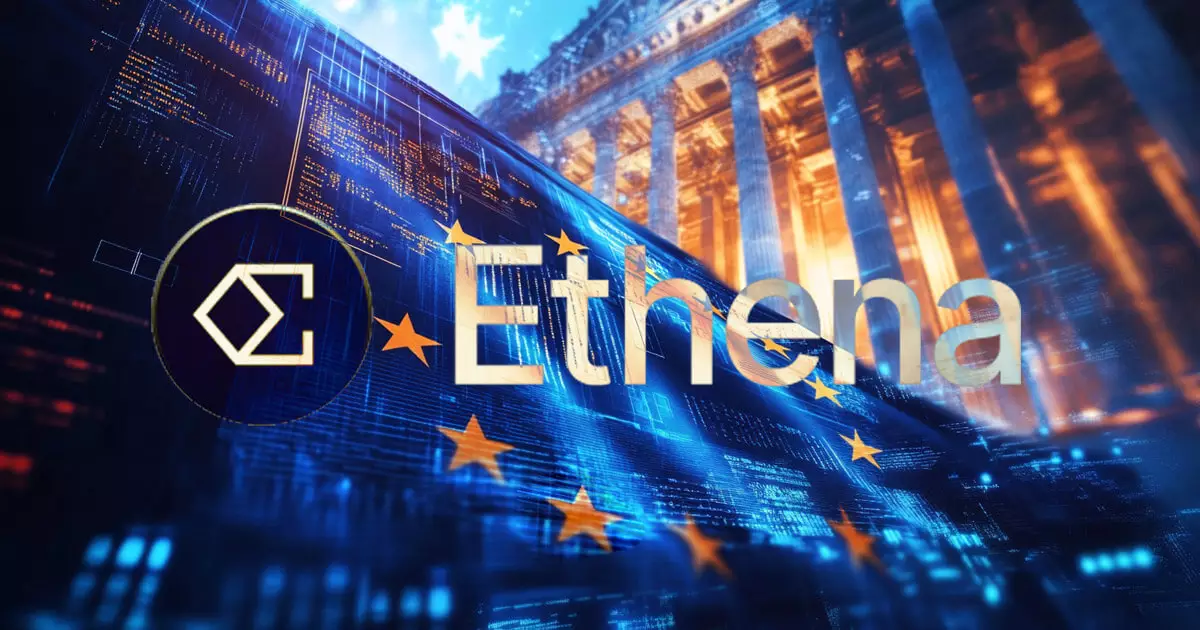The regulatory landscape for cryptocurrencies in Europe is evolving, with Germany’s Federal Financial Supervisory Authority (BaFin) at the forefront. Recently, BaFin rejected Ethena Labs’ application to issue asset-referenced tokens under the European Union’s Markets in Crypto-Assets Regulation (MiCAR). This decision was fueled by a mix of operational deficiencies and rising concerns that the sUSDe token might be an unlicensed security offering. As the crypto space attempts to mature and integrate into traditional finance, BaFin’s stringent measures signal an uncompromising stance on compliance that ought to be a wake-up call for similar entities.
Operational Shortcomings and Regulatory Vigilance
The term “significant deficiencies” is likely to reverberate throughout the corridors of crypto firms in Europe. BaFin’s evaluation of Ethena GmbH’s application revealed that their organizational practices fell short of what the MiCAR mandates. Critical aspects such as asset reserves and capital adequacy were found lacking, prompting BaFin to take immediate action by prohibiting public offerings of the USDe token in Germany. This regulatory stringency is not unwarranted; in a space rife with inflated valuations and insufficient scrutiny, BaFin is taking the proactive approach necessary to protect consumers and investors.
There’s a clear motivation behind BaFin’s actions. The financial world learned harsh lessons during the prior crypto boom and subsequent crash. Regulatory agencies are increasingly unwilling to gamble with investor protections, particularly when hybrid instruments like the sUSDe are involved. The intertwining of stablecoin capabilities with yield-bearing attributes creates a complex regulatory environment—one that legacy finance is ill-prepared for.
Market Implications of a Frosty Regulatory Environment
BaFin’s move to freeze the reserve assets of the USDe token introduces an unsettling precedent for crypto issuers in Europe. While the secondary market trading of USDe remains unaffected, the immediate restriction on redemptions raises troubling questions about liquidity and trustworthiness. Ethena Labs is caught in a regulatory crossfire, navigating a delicate balance between compliance and business continuity, while also having to reassure its user base about the safety of their investments.
Interestingly, the backdrop to this conflict is a wider landscape where other stablecoin issuers face challenges. For instance, major European exchanges like KuCoin recently delisted Tether USD (USDT) due to concerns regarding potential non-compliance. The perpetual state of uncertainty surrounding the operational legitimacy of these tokens creates a cyclic environment of pandemonium and mistrust. If major players like Ethena Labs struggle with compliance, it raises existential concerns for smaller operations trying to maintain a foothold.
The Shadow of Securities Classification
At the heart of BaFin’s rejection rests a notion of public trust: the sufficient suspicion that the sUSDe token might qualify as a security under German law. The implications of such a classification are grave for Ethena Labs, as it implies compliance with a range of securities regulations that come with stringent disclosure and prospectus obligations. The notion of “security” is already a contentious subject in the crypto arena; should sUSDe acquire that designation, it could lead to widespread reevaluation of similar financial instruments across the European Union.
The regulatory framework must adapt to existing and emerging hybrid digital assets. As the crypto market previously grappled with the consequences of inadequate regulations, it is essential that authorities develop robust classifications. This places a tremendous burden on innovative companies who must balance rapid development with cumbersome compliance—an increasingly narrow tightrope to walk.
What Lies Ahead for Ethena Labs and the Crypto Landscape
In response to the BaFin ruling, Ethena Labs issued a statement that suggests resilience amid turmoil. It speaks of “evaluating alternative frameworks” to achieve regulatory compliance, revealing a proactive approach that may set them apart in the long run. However, the company’s plan to continue USDe minting and redeeming activities through its British Virgin Islands affiliate raises red flags about jurisdictional shopping that could undermine the essence of regulatory frameworks in Europe.
Ethena’s predicament should signal a pressing need for unity in regulations that avoids creating a fragmented environment which could drive innovation underground. It is increasingly crucial for crypto firms to understand that adapting to regulatory demands is not a sign of weakness, but rather a necessary pivot to ensure longevity in an ever-changing marketplace. The question remains: will new regulations motivate transparency and compliance, or will they further entrench distrust across the European crypto landscape? Only time will tell.

